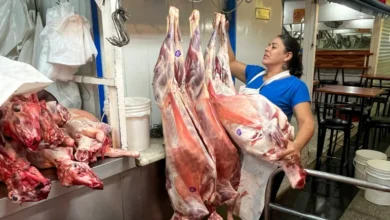Swine flu: UK detects first human case of new strain

Health officials are investigating the first confirmed case of a new strain of swine flu in the UK.
The A(H1N2)v infection was detected in a routine flu screening test at a GP surgery in North Yorkshire.
Officials said the person had respiratory symptoms, a mild illness and had fully recovered.
They are not known to have worked with pigs and investigations will look at where the infection came from and its risk to human health.
Human infections with swine flu viruses do occur – there have been 50 cases of A(H1N2)v reported globally in the past 20 years.
There was a case reported in the United States in August.
The infection found in the UK is slightly different from recent human cases of swine flu globally, health officials say, but similar to viruses in UK pigs.
In 2009, there was a pandemic of swine flu in humans caused by a virus spreading in pigs, birds and humans.
The UK Health Security Agency (UKHSA) said it planned to increase surveillance through GP surgeries and hospitals in parts of North Yorkshire where the case was detected.
Meera Chand, the agency’s incident director, said: “We are working rapidly to trace close contacts and reduce any potential spread.
“In accordance with established protocols, investigations are under way to learn how the individual acquired the infection and to assess whether there are any further associated cases.”
The new Health Secretary Victoria Atkins said the individual was identified through a “thorough and extensive” screening and monitoring programme run by UKHSA.
“It’s good that this case has been spotted – please trust the UKHSA to do their job and to monitor carefully,” she said.
People with flu-like symptoms are advised to avoid contact with others, particularly those who are elderly or vulnerable, with other health conditions.
Chief Veterinary Officer Christine Middlemiss said: “We know that some diseases of animals can be transferred to humans – which is why high standards of animal health, welfare and biosecurity are so important.”
She said pig-owners must report any signs of swine flu in their herds to their local vet.
Paul Hunter, professor of medicine at the University of East Anglia, said A(H1N2) did not cause any more severe disease than other commonly circulating types of influenza.
Ian Jones, professor of virology at the University of Reading, said it was “very unlikely” that the single case represented “anything more than has been seen in the past”, adding that the mild infection was “also in keeping with previous experience”.










